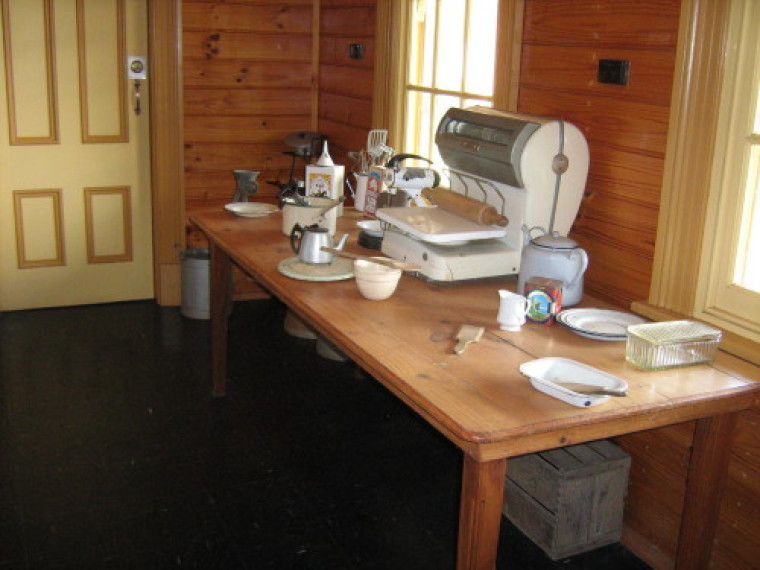
In the 1990's when the Footplate Padre was living in Moruya on the New South Wales south coast a retired couple turned up at their local Baptist church. They turned out to be from Manchester England who were on a 'home swap' with a family in Moruya who were staying in their home in England.
This proved providential for the Footplate Padre's son whose dream it was to relocate to England and work. As his grand mother was English, the lad was entitled to an Ancestry Visa.
This Manchester couple became good friends with the Footplate Padre's family, and the gentleman David was a member of the Manchester City Soccer (Football) Club and the Footplate Padre's lad was made on the English Premier League. They became firm friends and after qualifying in business college he was off to England and to their home.
One of the locomotive drivers who contributed to his many railway books tells the story from 1953, that on one occasion at Lake Grace in Western Australia in the days of steam, the driver in charge was able to swap homes with the Station Master who hailed from Albany. This gave their wives a break from their own routines.
This is a story from the Footplate Padre's book titled Steam Stories. This article was titled "Two Bulls" on page 62.
Not only did the wives and children have a different experience from their usual activities, but it gave them both a sense of the railway working schedules that their husbands were engaged.
Albany was the major city on the very south coast of Western Australia. Lake Grace is part of the greater wheat belt of Western Australia between Perth and Albany, a huge farming area that even today takes 2 hours by plane.
For the Lake Grace family they had the opportunity to visit the city sights and a much wider variety of shopping, even in the fifties. For the Albany family, it gave them a taste of rural life in a country town.
Albany experience
Now, the rail line ran past the station master's home at Albany, and it was here that engines were detached and sent to the locomotive depot. On this particular occasion, a stock train pulled up. 99% of stock in that era was transported by rail.
The train came to a stand opposite the station masters home as usual, the engine was detached for for locomotive depot as usual, and three quarters of an hour later the engine was back on the train, having been re-coaled and re-watered.
Meanwhile there was a great ruckus coming from one of the stock wagons not far back from the engine. When the Lake Grace driver who was holidaying heard this noise, he decided to investigate taking his young son along for the look-see!.
Much to his chagrin, and to his utter dismay, he found that two bulls had been placed together in the one wagon – a sure recipe for disaster. Any rural person was aware of this, it was common lore.
As the Lake Grace driver and his little son arrived on the scene, some five trucks back from the engine, a splinter of timber from the sides of the wagon flew overhead, just missing the young lad. Had it struck the boy he would have been killed instantly – such was its force.
The two bulls were going for it – kicking, snorting bunting, goring – there was blood and guts everywhere – it was on for young and old! A vet was hurriedly called – the tranquilliser gun was used and eventually one of the bulls had to be put down.
For months afterwards there were serious questions by the department as to why two bulls were placed in the same wagon. - the owners were very angry and the financial compensation was huge.
Knowing "stuff" is very important. Ministers know this. When locating from one congregation to another as is their custom, one of a Minister's first tasks (one of many) is to ascertain where the "bodies are laid" (a colloquial term for finding out "stuff") to more effectively minister to the congregational members and more so, not to put his foot into it.
The Footplate Padre says that the same applies to families moving from city to city / town to town / and finding a congregation that meets their family's needs. A number of local churches can have very different and yet effective children's and youth programs and it's important to find the one that best suits each family.
Dr Mark Tronson is a Baptist minister (retired) who served as the Australian cricket team chaplain for 17 years (2000 ret) and established Life After Cricket in 2001. He was recognised by the Olympic Ministry Medal in 2009 presented by Carl Lewis Olympian of the Century. He has written 24 books, and enjoys writing. He is married to Delma, with four adult children and grand-children.
Mark Tronson's archive of articles can be viewed at www.pressserviceinternational.org/mark-tronson.html
